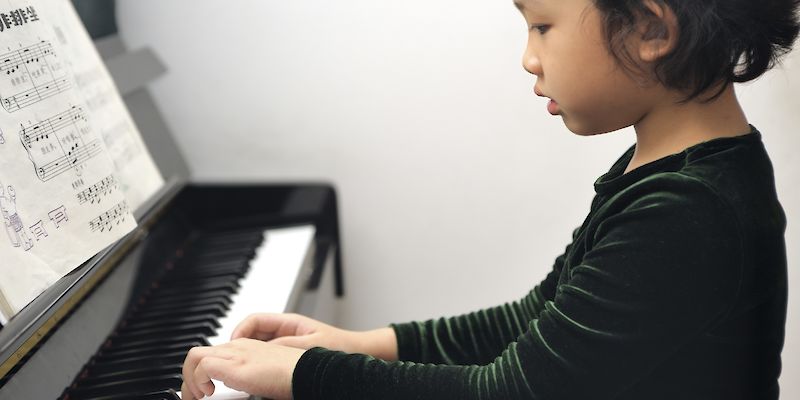
The Suzuki Method for Piano
We often get inquiries from parents looking for lessons for children in the age range of 3-5, and while this is the best age to introduce music to children (if not earlier), the choice of what to do comes down to how ready the child is, and the level of participation that the parents can commit to.
For any type of music lesson, 3-5 is considered very early to start, and traditional lessons don’t work for kids under the age of 6 or 7 at the earliest.
So what should you do if you want to get your child involved in music, and they are too young for regular lessons? One option is an early childhood music program/system, like Musikgarten, or Suzuki ECE (ages 0-3). Suzuki ECE in particular will introduce you to the core principles of the Suzuki Method, and set you on the right track to start instrumental lessons at the earliest possible time.
If your child is a little older, like 3-5 and they seem ready for lessons now, or will be soon, the The Suzuki Method® is going to be your best and only option. Developed by Dr. Shinichi Suzuki, the method is geared towards children starting lessons in the early childhood age range of 3-5. Unlike traditional music lessons, where the parents have little or no involvement with their child’s lessons, children in a Suzuki Piano program learn the instrument with the help of a dedicated home teacher: the mother, father or guardian, who practice with the child, and attend all lessons and classes.
The home teacher is trained prior to the start of the child’s lessons. That’s right - you the parent will take piano lessons well before your child begins, and by the time your child is ready, you will be an expert on how to be their very own home teacher. In this setup, the ‘teacher’ you see once a week assumes the role of coach/mediator and fosters the development and progress of both the student, and the all important parent who will be carrying out the teacher’s instructions at home.
The Suzuki method relates in part to the idea of a ‘mother tongue’, meaning that children can acquire a ‘language’ by being immersed in a nurturing environment. Music is understood by the brain as a form of language and therefore children in particular can learn music by being immersed in an environment where the music is being played by the parent, as well as being heard from a recording.
The music children learn in the Suzuki guitar school is standardized and carefully sequenced by a committee of professional pianists, and each piece prepares the student for the next.